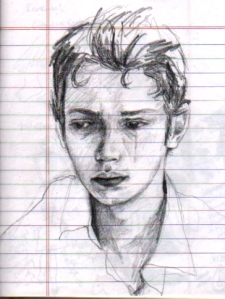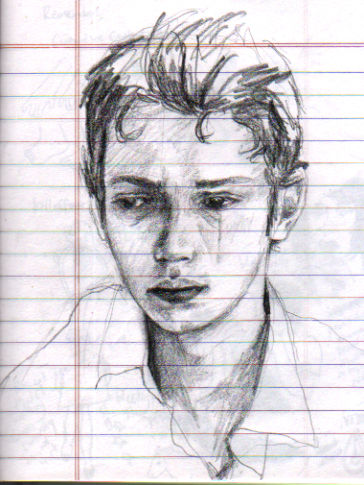
A video depicting a little boy receiving three vaccinations and his dad coaching him through it, has made it around the social media circles. The video is rather cute and harmless, as the expression on the little boy’s face reflects the feeling we all have when a nurse brings a needle into the room. However, there is something darker hidden amongst the innocence of this video. In the video, the father tells the boy, as he starts crying, to say, “I’m a man.” The boy originally does not oblige, but finally is able to eek it out through a waterfall of tears.
This simple phrase is what is of concern in this video. I will not over-exaggerate and say that this video is a travesty, or that the dad is not a good father. In fact, most people probably glossed over this phrase or just saw it as a cute thing the boy uttered. This is because these ideas are so deeply entrenched in our lives. Saying “I’m a man” has become just normal as saying “man up” or “don’t be a girl,” something that all people, not just men, hear all the time. However, as a society, we must look critically at how comfortable we have gotten with these phrases. In reality, these sayings have very sexist meanings, implying that the male gender is the stronger one, both physically and mentally especially inregards to pain tolerance.
So why then do we still use them? These phrases are so deeply entrenched that it is hard not to make consistent use of the mentioned phrases; it almost seems like second nature to us, and that is very difficult to give up. These phrases also give a deeper look at a rarely explored side of gender relations. While the feminist movement has recently gained much traction, especially in the younger generations, its twin, hereby dubbed “masculinism” is much less discussed. According to Microsoft Word, which I am currently using, this is not even a word. It should be.
What feminism could lack, in practice, is balance. The idea of gender equality, which feminism is based on, is not female to male equality. It is not, and should not be, simply women fighting for the ability to engage in typically male activities and act in typically masculine ways without mistreatment or judgment. It is, instead, gender equality, meaning that fairness should be extended in all ways, whether that be women acting and engaging in traditionally masculine ways, or men acting and engaging in traditionally feminine ways. When the father tells the boy to say “I’m a man,” it should not just be the feminists who are upset by the presumption that only men are strong, but men too shouldbe upset, as it presumes a good or strong man cannot show his emotions.
Men, traditionally, do not express their emotions. So where do all these emotions go? They does not simply disappear. Saying “I’m a man” does not wipe the sadness or dread from our minds; it stores it. While this emotional storage is quite large, it does need to be emptied every once in a while, and while there are constructive ways to empty it, ways that have been explored before, there are also very destructive ways: anger, alcoholism, war, to name a few. Just as much as women should not have to endure gender discrimination, men should not have to cope with the problems that not expressing their emotions create.
So who is holding men back? Men are. Men are primarily who promote the idea of the traditional man. That means that we, as men, are fighting the hardest enemy to fight, ourselves. As men, we must stand up and assert to ourselves, and to our fellow men that we can express traditional female qualities, engage in traditional feminine activities, and above all, express our emotions, without fear of having our sexualities questioned, or being ridiculed. We must stand up for this right, and support each other in this endeavor, as it will make us better friends, sons, brothers, boyfriends, men, and humans in a world which needs more of these.
